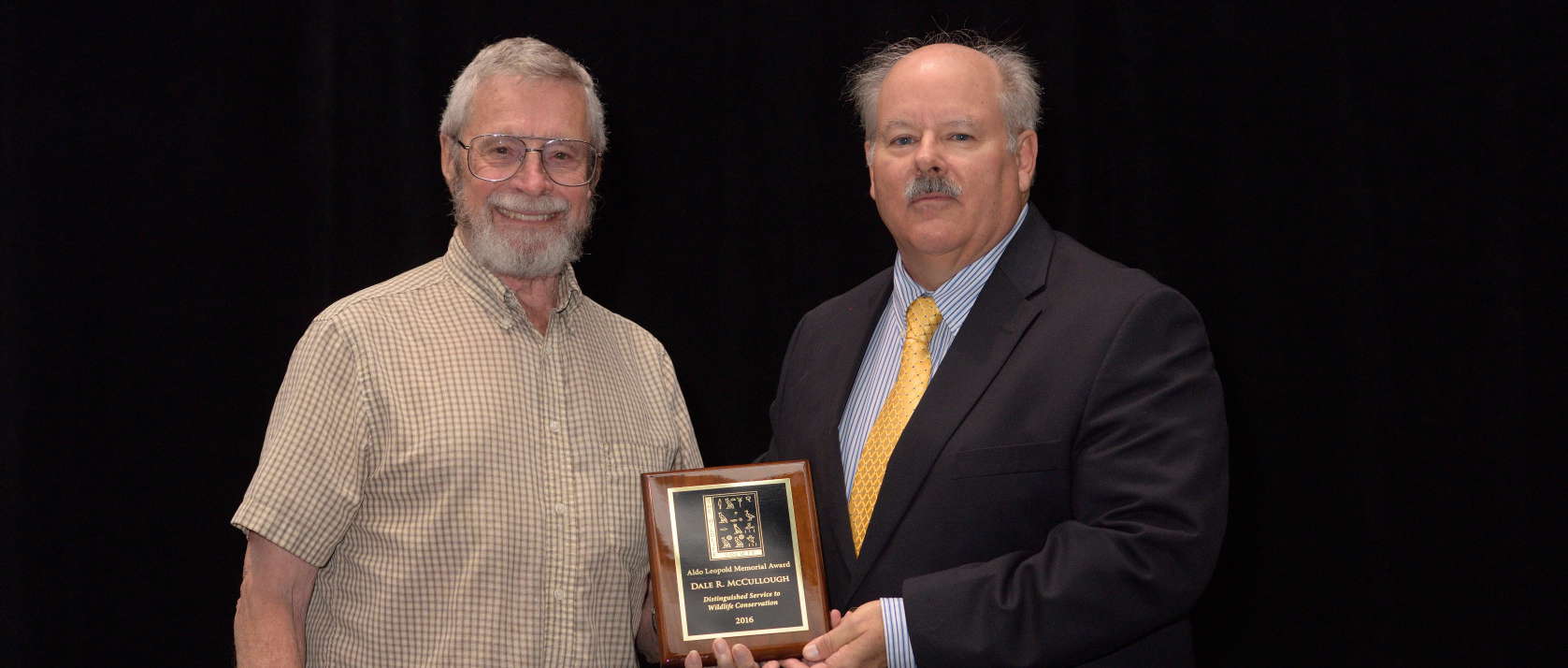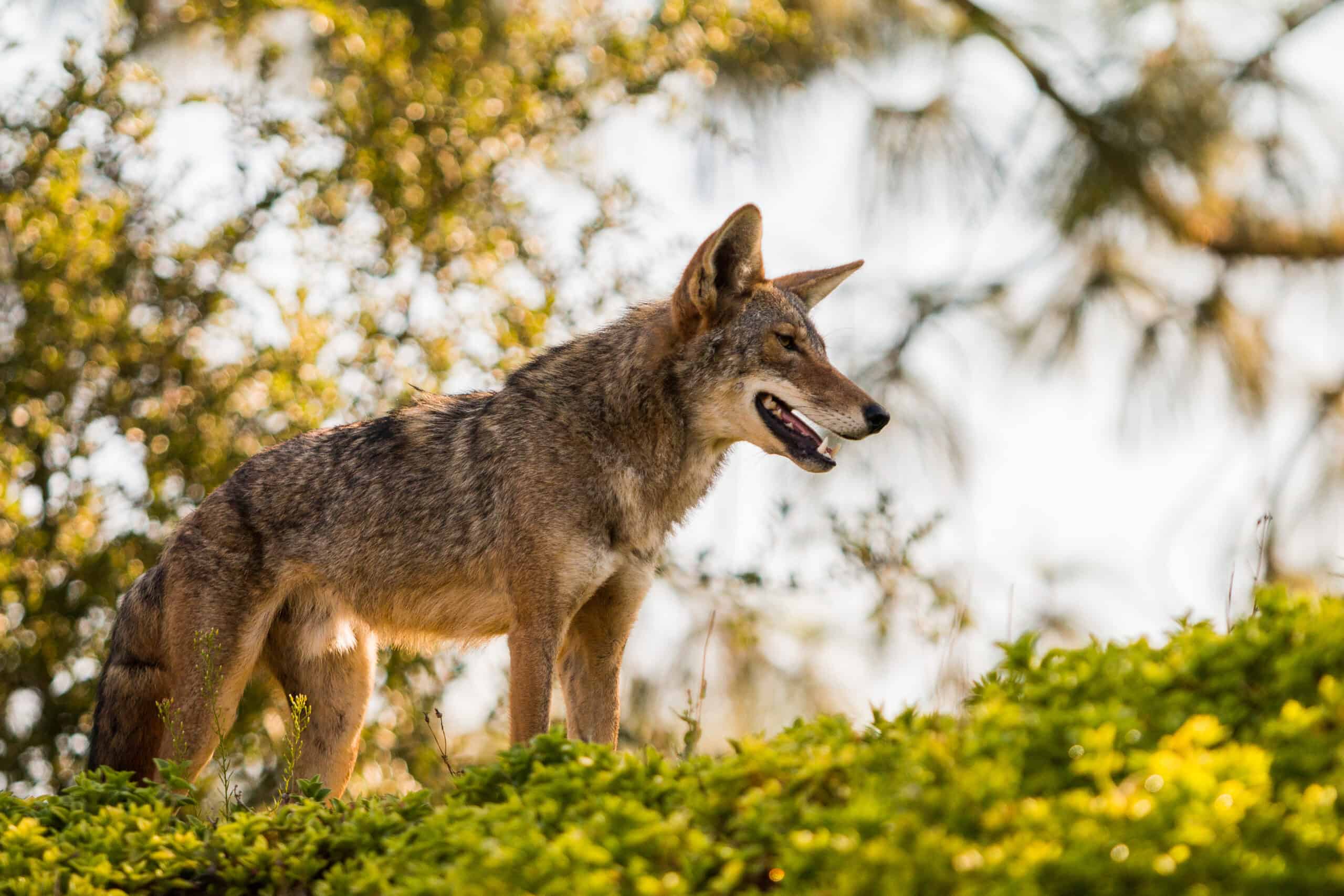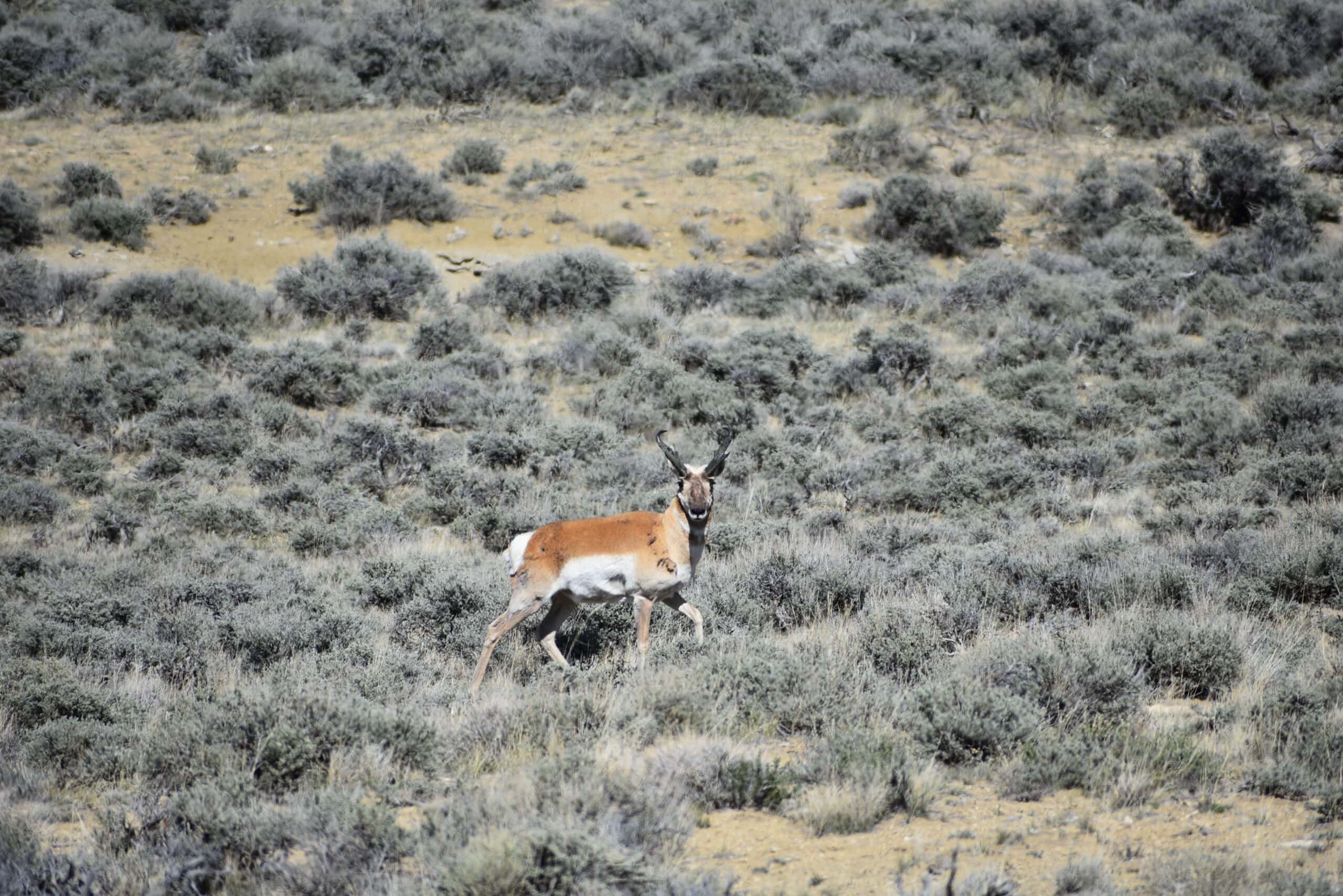Share this article
Forward thinking earns McCullough Aldo Leopold Award
Progressive ideas are not always popular. Innovation can challenge existing institutions and is often met with scrutiny before being accepted by the masses. Dr. Dale McCullough believes he faced this reality at times during his illustrious career in wildlife.
His résumé begins with a B.S. in Wildlife Management from South Dakota State University (then South Dakota State College) and carries through to a master’s degree from Oregon State and finally a Ph.D. in Zoology from the University of California, Berkeley, where he would retire from as Professor Emeritus in 2004. Featuring 10 books and a myriad of other publications, the résumé seems endless. Just before his retirement, his academic family was estimated to have over 410 members (students, students of students and so on) but he estimates that number has nearly doubled in the years since.
“I’ve taken the approach in my research to first search for the scientific question; to have hypotheses, to test theories and so on,” said McCullough, who was presented with The Wildlife Society’s Aldo Leopold Memorial Award at the 23rd Annual Conference in Raleigh, North Carolina. “This made me unpopular with a number of people because when you test theories and belief systems, some people are going to be proven by that to be incorrect.”
But McCullough never let the opinions of others shape his method of pushing for the advancement of wildlife research and management. The science is important, he says, but he always went a step further to answer questions that have management and conservation consequences. A perfect example of that was his work on the population ecology of the George Reserve deer herd.
“That was, at heart, a study of how populations of large mammals work,” he said. “But it had huge ramifications because of all the management programs around the country—and around the world—on how harvest programs were run.”
From the time he stepped foot on the George Reserve, he saw its potential. It was an enclosed area with the ability to be privately managed. There was no need for the approval of fish and game departments, state natural resources departments, federal agencies or anyone else. McCullough accepted the professional position with the University of Michigan knowing he would be able to manipulate the population, and that’s exactly what he did for more than two decades. As predicted, the data he collected turned out to be a gold mine, and in 1979 he published “The George Reserve Deer Herd: Population Ecology of a K-Selected Species,” which has been cited over 600 times and is perhaps his most influential publication.
McCullough’s views on the connection between science, management and conservation bled into his relationship with TWS, which began over 50 years ago. He was one of three founding members of the San Francisco Bay Area Chapter and he once served as Western Section president. In the late 1980s he was part of a national committee that explored the possibility of an independent TWS meeting, separate from the North American Wildlife and Natural Resources Conference, part of his reasoning being that it was time for TWS to expand into increased emphasis on science.
At the time, his ideas gained little traction among TWS members and they voted against an independent meeting. But just a few years later, in 1994, TWS held its first Annual Conference, a tradition that has become essential to the Society and its members. Today, the Society continues to increase emphasis on reconnecting science and management, which McCullough stressed for years. In March, at the North American Wildlife and Natural Resources Conference in Pittsburgh, TWS even held a joint workshop on bridging that gap.
“I don’t see any boundary between science and conservation and management,” McCullough said. “It’s sort of a continuum, and I think The Wildlife Society has mainly come around to that view now.”
Maybe McCullough was ahead of his time, or maybe the Society was behind. But both seem to agree that we’re headed in the right direction now, and that makes this Aldo Leopold Memorial Award a little bit sweeter.








